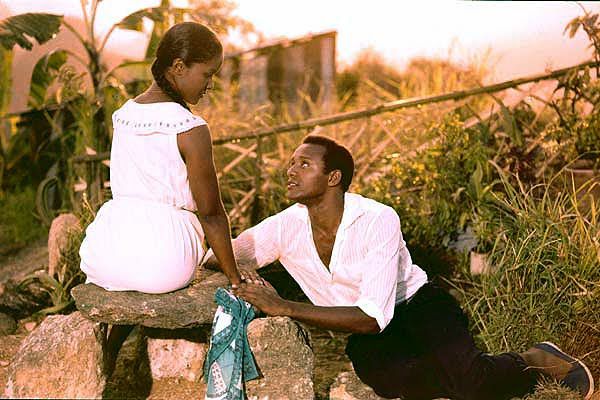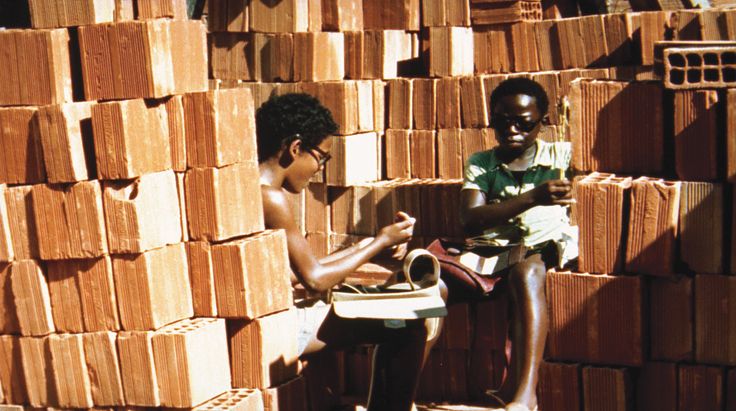Before looking at the list of the Best Brazilian movies to watch, it’s important to know that In a country like Brazil, cinema has been with the nation since the birth of the medium. Only months after the Lumiere Brothers unveiled their newest invention, Rio de Janeiro found itself in one of the world’s first exhibitions of motion pictures as a medium. At the turn of the century, and the arrival of the 1900s, film became something very popular in Brazil, which had been almost independent of the Portuguese for a century by that point.
However, while film was popular within the country, many of these movies weren’t exported for international consumption. Silent films were all the rage in Brazilian culture during the early periods of film, although a lack of representation could be seen among the stars of the period.
But it wasn’t until after World War II that the country’s national cinema scene began to pick up steam and create the industry that is known today. Telenovelas even became a concept in the ’40s and were a part of Brazilian entertainment, and directors began to focus on diversity and critical commentary on class and politics within their films.
Today, Brazilian movies are an excellent glimpse into life in the Latin American country because of how they continue this tradition of casting a critical gaze towards the culture. Here are 10 must-watch Brazilian movies to get you started.
Discover more about Brazilian culture and deepen your language skills by visiting the Learn Portuguese section of my blog. Explore interactive lessons, language exercises, and resources designed to enhance your learning experience. Immerse yourself in the beauty of Brazilian culture through language and bring a new level of authenticity to your language journey!
Key Takeaways:
- Explore the rich heritage of Brazilian cinema with these top picks
- Discover the best Brazilian movies to watch that offer a unique perspective
- Dive into a variety of genres and themes, from crime dramas to coming-of-age stories
- Experience the vibrant culture and societal issues depicted in these award-winning movies
- Expand your cinematic horizons by immersing yourself in the best of Brazilian cinema
Black Orpheus (1959)
Marcel Camus’ Black Orpheus made a significant impact when it was released in 1959. The film received international acclaim, winning prestigious awards such as the Palme d’Or and the Academy Award for Best International Feature Film. However, it also faced criticism from Brazilians for its portrayal of the country and its people.
Based on the Greek legend of Orpheus and Eurydice, Black Orpheus transports the story to a slum in Rio de Janeiro during carnival season. The film is filled with vibrant music and centers around the hope that the jilted lovers can sustain their romance. Despite its accolades, Black Orpheus serves as a reminder of the complexities and challenges of creative collaboration with local populations. Some argue that the film would have been different if directed by a local filmmaker instead of Marcel Camus, a French director.
As viewers, it is crucial to approach Black Orpheus with an awareness of its flaws and critically analyze what it truly means to be Brazilian, free from the lens of an outsider. By examining the movie through a discerning perspective, we can gain deeper insights into the diverse cultural nuances and realities of Brazil that extend beyond the surface portrayal in the film.
“Black Orpheus serves as a reminder of the complexities and challenges of creative collaboration with local populations.”
City of God (2002)
City of God is an epic crime movie set in a suburb of Rio de Janeiro known as “City of God.” This working-class neighborhood, built in the ’60s as a housing project, becomes the backdrop for a gripping tale of organized crime and survival in the slums. The story begins with three thieves on the run, hiding out from the police in City of God. When they rob a motel, a brutal massacre ensues, forcing them to confront the harsh realities of their environment.
As the years pass, organized crime takes hold of the favela, leaving its residents to navigate a world fraught with danger and desperation. City of God sheds light on the struggles faced by those living on the fringes of society, challenging the judgments made by those in higher socioeconomic classes. Through its authentic portrayal of everyday people fighting for survival, this epic crime movie humanizes the residents of City of God and provides a poignant reflection on the lengths people will go to in order to protect themselves and their loved ones.
Key Highlights:
- Set in the working-class neighborhood of City of God in Rio de Janeiro
- Epic crime movie depicting the harsh realities of life in the slums
- Explores the influence of organized crime in the favela
- Offers a glimpse into the daily struggles faced by residents
- Challenges preconceptions about those living in poverty
“City of God exposes the raw and often brutal reality of life in the slums of Rio de Janeiro. Through its powerful storytelling and authentic portrayal of characters, this film provides a gripping and thought-provoking commentary on organized crime and survival in one of Brazil’s most notorious neighborhoods.”
Elite Squad (2007)
When Elite Squad was released in 2007, it became a massive success in Brazil. To everyone’s surprise, the film went on to win the prestigious Golden Bear at the Berlin Film Festival. Set on the eve of Pope John Paul II’s visit to Brazil, the movie follows the story of Roberto, a captain with the special police. As the Pope’s arrival approaches, the special police plan a crackdown on the favelas, the poorest neighborhoods in the country.
Elite Squad delves deep into the role of the police in enforcing state violence in Brazil, particularly in the marginalized communities. The film raises gritty issues of corruption and showcases the shocking reality faced by many people, especially those in the capital city.
This critically acclaimed film gives an unfiltered glimpse into the underbelly of Brazilian society, exposing the complexities of power dynamics, corruption, and the desperate struggle for survival in the face of systemic oppression.


